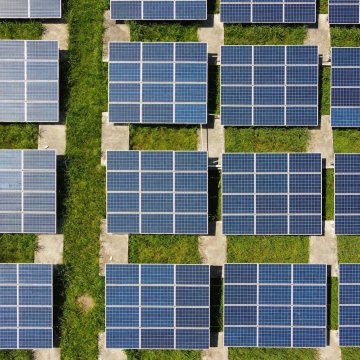- About
- Topics
- Picks
- Audio
- Story
- In-Depth
- Opinion
- News
- Donate
- Signup for our newsletterOur Editors' Best Picks.Send
Read, Debate: Engage.
| topic: | Renewables |
|---|---|
| located: | Indonesia |
| editor: | Leo Galuh |
While the COVID-19 pandemic has strained Indonesia’s healthcare and economy, it has also had the adverse effect of derailing its transition towards renewable energies that it had previously began. To mitigate the burden placed by the pandemic on people and the economy, the Indonesian government was forced to reallocate $49 billion from its 2020 fiscal budget towards healthcare, social assistance and financial aid for small businesses. The stress on the country’s budget has decreased Indonesia’s ability to finance its long-term climate goals, and will threaten its ability to achieve its energy transition target of 23 percent renewable energy by 2025.
To alleviate this shock to climate adaptation, collaboration between the public and private sectors is needed to accelerate the country’s energy transition and drastically reduce its carbon emissions. To spur this collaboration, one Climate Policy Initiative report recommends the issuance of green bonds - sovereign debt securities that can be issued by subnational governments for projects with positive environmental benefits. However, certain stigmas and complications currently make these green bonds unattractive for investors: notably, the Indonesian government’s lack of experience with green bonds, the small pool of investors interested in them, projects with smaller than average returns, and the lack of knowledge around green economies.
As a tropical country with yearlong sunshine, Indonesia has the potential to source boundless solar energy. The government has set the target of installing enough solar panels to garner 3.61 gigawatts of solar power. Currently, Indonesia has installed 154 megawatts of rooftop solar power, which is less than ten percent of the government’s ambitious goal of 2.14 gigawatts of rooftop solar installation. Reaching this goal, which can bring hefty profits, requires the collaboration of the commercial and industrial sectors.
One positive example of this collaboration came at the BNEF Summit (an event seeking to propose and finance the move to green energies), when Ery Wijaya, a senior analyst with Climate Policy Initiative (CPI), revealed that the NGO wants to contribute around 100 megawatts throughout rooftop solar project plans by 2025.
Wijaya said that CPI will help relevant companies and investors decrease perceived financial risk by incubating potential project plans to be more commercially viable and creditworthy. It will address the main challenge of high-risk perception that has stifled investment growth in the commercial and industrial sectors, he added.
“Indonesia has huge potential for rooftop solar capacity, yet the funding is rare. The main challenge is the high risk of investment,” Wijaya said.
He stated that technology companies, business consultants and legal experts will provide advice for project owners, including feasibility studies, engineering design support, monitoring and evaluation frameworks and impact assessment.
This rooftop solar power project will also aim to bring solar panels to some areas in Indonesia that still lack electricity, like the eastern part of Indonesia. While this won’t contribute fully to the reduction in energy from fossil fuels, it is overall a noteworthy first step towards investing in a brighter, greener future for all Indonesians.
Photo by Anders J

